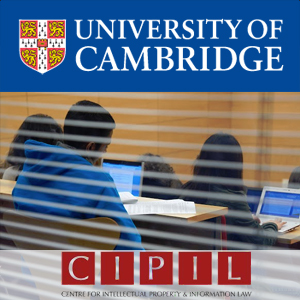'The Justifications Behind the Legal Protection of Self-help Mechanisms' - Petroula Vantsiouri: CIPIL Seminar
Duration: 23 mins 2 secs
Share this media item:
Embed this media item:
Embed this media item:
About this item

| Description: |
Petroula Vantsiouri, Doctoral Candidate at the University of Cambridge, gave an evening seminar entitled "The Justifications Behind the Legal Protection of Self-help Mechanisms" on Friday 30th November 2012 at the Faculty of Law as a guest of CIPIL (the Centre for Intellectual Property and Information Law).
Petroula Vantsiouri is a Doctoral Candidate at the University of Cambridge. Her research interests lie in intellectual property law and information law. Her doctoral thesis takes a comparative stand towards the intended and unintended consequences of anticircumvention regulation in the European Union and in the United States, as they are applied in different sectors, namely broadcasting, software and other copyright works. For more information see the CIPIL website at http://www.cipil.law.cam.ac.uk |
|---|
| Created: | 2012-12-03 11:45 |
|---|---|
| Collection: | CIPIL Intellectual Property Seminar Series MOVED |
| Publisher: | University of Cambridge |
| Copyright: | Mr D.J. Bates |
| Language: | eng (English) |
| Keywords: | Intellectual Property; Software Directive; Information Society Directive; Conditional Access Directive; Digital Millennium Copyright Act; Technological Protection Measures; Copyright; DRM; Digital Rights Management; |
| Abstract: | This presentation explores the legislative history of the Software Directive, the Information Society Directive, the Conditional Access Directive and of the Digital Millennium Copyright Act in order to identify the justifications that led to the adoption of anti-circumvention regulation in the EU and the US. Self-help mechanisms that control access to and uses of digital works, also known as Technological Protection Measures (TPMs), have been criticised as ineffective in achieving their goals. Based on this criticism the entertainment and information industries ask for further protection of their rights and the introduction of stricter rules, whereas copyright sceptics ask for the abandonment of the use of TPMs. Both claims depend though on what exactly constitutes the aim that TPMs can actually serve.
|
|---|---|

